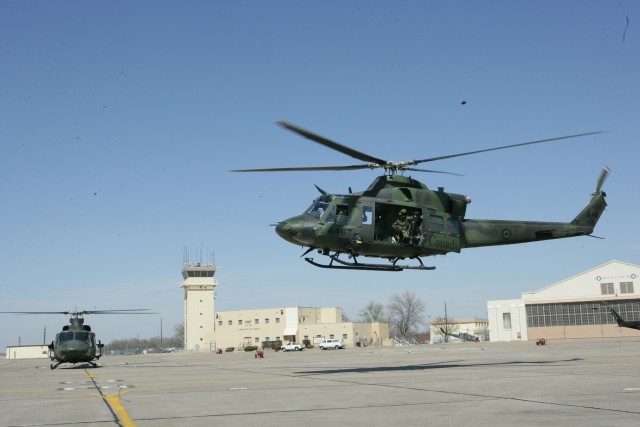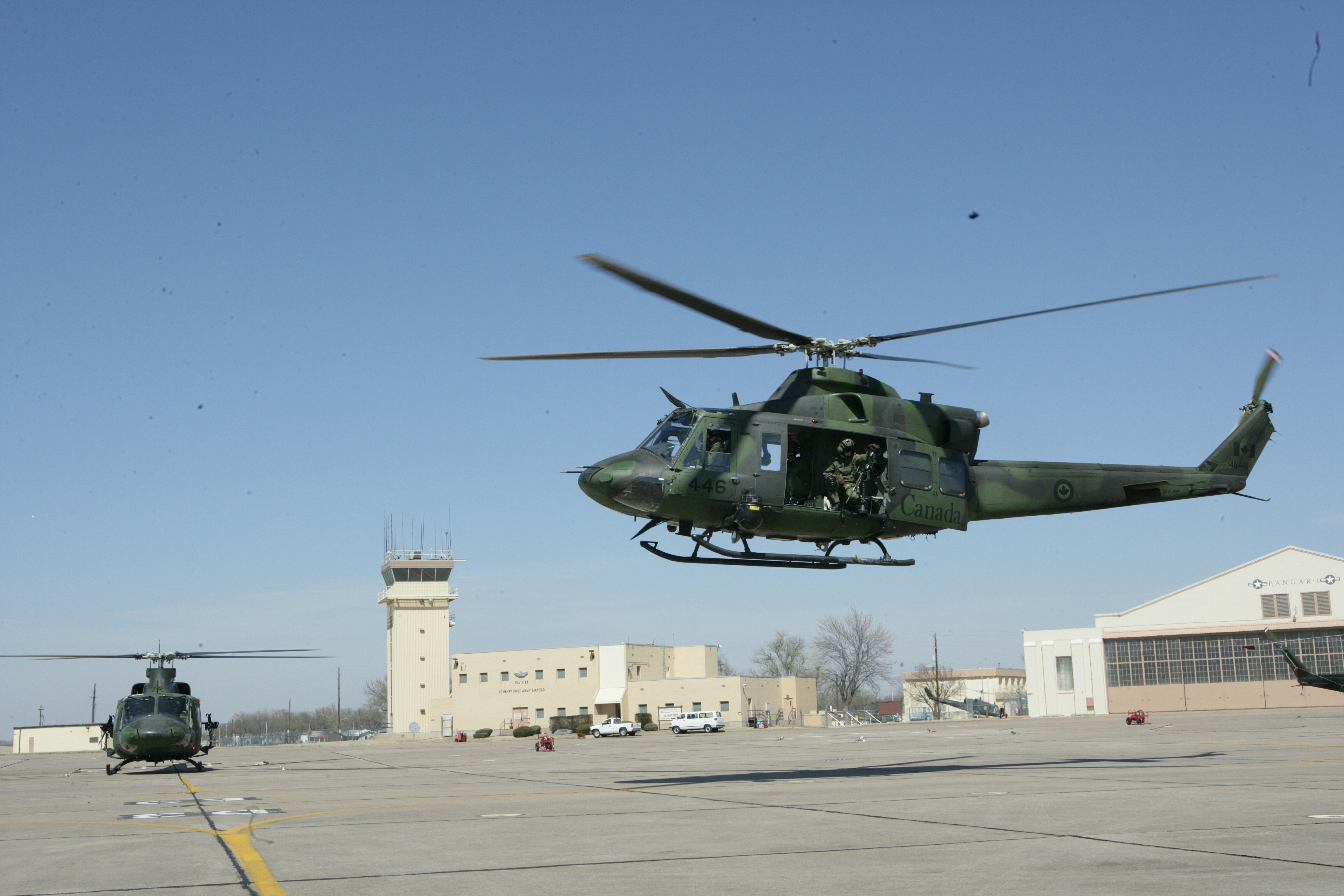By Hiro Chang
Fort Sill Cannoneer
The United States and Canada have always maintained a steady relationship of military support. That bond was strengthened after Sept. 11.
So, when the Canadian Forces Field Artillery School needed support for their Forward Air Controller course, Fort Sill, Home of the Field Artillery, was ready to fill that need.
"(Fort Sill's) Henry Post Army Airfield is where the Canadians are staging out of to support their (FAC)," said Wayne Guffy, HPAA operations officer.
Guffy said the Canadian FAC students do most of their course work in their schoolhouse at Gagetown, New Brunswick. But, they have been using the Close Air Support range here since February 2007 for their final practical exercises.
"They set up the course here because the weather is so bad up there and it's hard for them to train year round," Guffy said.
"For our final exercise, we perform it on Fort Sill because the air weapons range is better suited for our needs," added Canadian Forces Capt. Sebastien LePierre, 430th Squadron from Valcartier, Quebec.
The FAC course, which was certified as a Joint Tactical Air Controller-equivalent course by personnel from Nellis Air Force Base, Nev., teaches its students to control fast air fighter jets and attack helicopters, according to LePierre.
"Radios get pretty busy in the air. We have two different jets, the F-18 and the Alpha jets, that fly at different altitudes," LePierre said. "We are the lowest level providing 7.62 mm machine gun fire to suppress targets," said LePierre, who supports the FACs with aerial gunnery from his CH-46 Griffon attack helicopter.
The students use those assets to perform their final exercise, but to execute the mission, the aircraft have to be on-hand for the controllers to use.
So other U.S. bases lend support to the Canadian Forces by housing their aircraft and personnel.
"The F-18 Hornets stage out of Naval Air Station Joint Reserve Base Fort Worth, Texas, and the Alpha jets are contract jets that fly out of Sheppard Air Force Base, Texas," Guffy said.
There also had to be a great amount of coordination to get weapons and aircraft across the border for use during the exercises.
"It's not the first time we've come here," LePierre said. "The Fort Sill staff have given us great support."
What was usually a 90-day preparation time to get everything ready turned into 30 days, LePierre added, attributing a lot of this ease of movement to the staff at HPAA.
"We have had good contact with Wayne Guffy and Randy Palmer from Airfield Management. They have made it very easy right from the get go," LePierre said.
"I called them, and they sent me a great package with a lot of information. They do their best to accommodate us; they make it easier for us to park our helicopters in good spots and basically make the diplomatic effort to bring Canadian helicopters here."
Guffy, under direction from Palmer, ensured the Canadians got their Army Aviation Authorization to come to Fort Sill.
"We also set up a temporary Web site for two weeks so the Canadians can download stuff, like unclassified maps of the training areas and things like that," Guffy said.
Airfield management also provided access to contract maintenance support if there were any major maintenance needs that the Canadians had, Guffy said.
"They made it easy for us to (get fuel and ammo), coordinated with Range Control, making the job go a whole lot smoother for us," LePierre remarked.
"It's worked out so well, they are going to continue this and for the near future they were going to come here every quarter," Guffy said.
For Guffy, getting the Canadians here was not just a job, but something he could do as a comrade, in a sense.
"They're neat guys, and plus, birds of a feather flock together," said Guffy, who is a retired aviator. "They're good to work with; we haven't had any problem, and its just seeing the other side of the world. We're glad to have them."
LePierre shared the same sentiment.
"We are going to come back at least three more times," LePierre said. "And, I can see us coming back for years to come."


Social Sharing